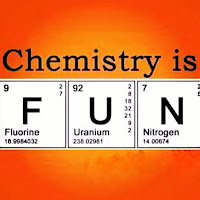Branches of chemistry.
1.Organic chemistry: IT is study of most carbon containing compounds
https://en.wikipedia.org/wiki/Organic_chemistry?wprov=sfla1
https://en.wikipedia.org/wiki/Organic_chemistry?wprov=sfla1
Application: pharmaceuticals, different industries , research, plastic,
2.Inorganic chemistry: IT is the study all elements others than carbon . Means others compound which contains carbon this also come under inorganic chemistry. https://en.wikipedia.org/wiki/Inorganic_chemistry?wprov=sfla1
Application: minerals, metals& non- metals, semiconductor, electrochemistry, research.
3.Physical chemistry: The study of behaviour & changes of matter &the releted energy changes.
https://en.wikipedia.org/wiki/Physical_chemistry?wprov=sfla1
https://en.wikipedia.org/wiki/Physical_chemistry?wprov=sfla1
Application: chemical kinetics, thermodynamics, viscosity, surface tension.
4.Analytical chemistry: compounds & their composition analysis, industry, production.
Application :industry food nutrients, quality control.
Application :industry food nutrients, quality control.
5.Biochemistry: chemistry related to living organisms.
https://en.wikipedia.org/wiki/Biochemistry?wprov=sfla1
https://en.wikipedia.org/wiki/Biochemistry?wprov=sfla1
Application: fermentation, DMLT, Pharmaceuticals ..,etc.
6.Polymer chemistry: chemical synthesis structure.
https://en.wikipedia.org/wiki/Polymer?wprov=sfla1
https://en.wikipedia.org/wiki/Polymer?wprov=sfla1
Application: plastic, rubber, textile fabric & advanced materials.
7.Nano chemistry: combination of chemistry & nanoscience dependant on size, surface, shape & defects properties.
Application: buildings , small materials.
8.Green chemistry: green chemistry is eco-friendly chemistry we can say that it deals with the formation of products which are not hazardous.
https://en.wikipedia.org/wiki/Green_chemistry?wprov=sfla1
https://en.wikipedia.org/wiki/Green_chemistry?wprov=sfla1
Application : industry , research.


👍
ReplyDeleteThanks
Delete